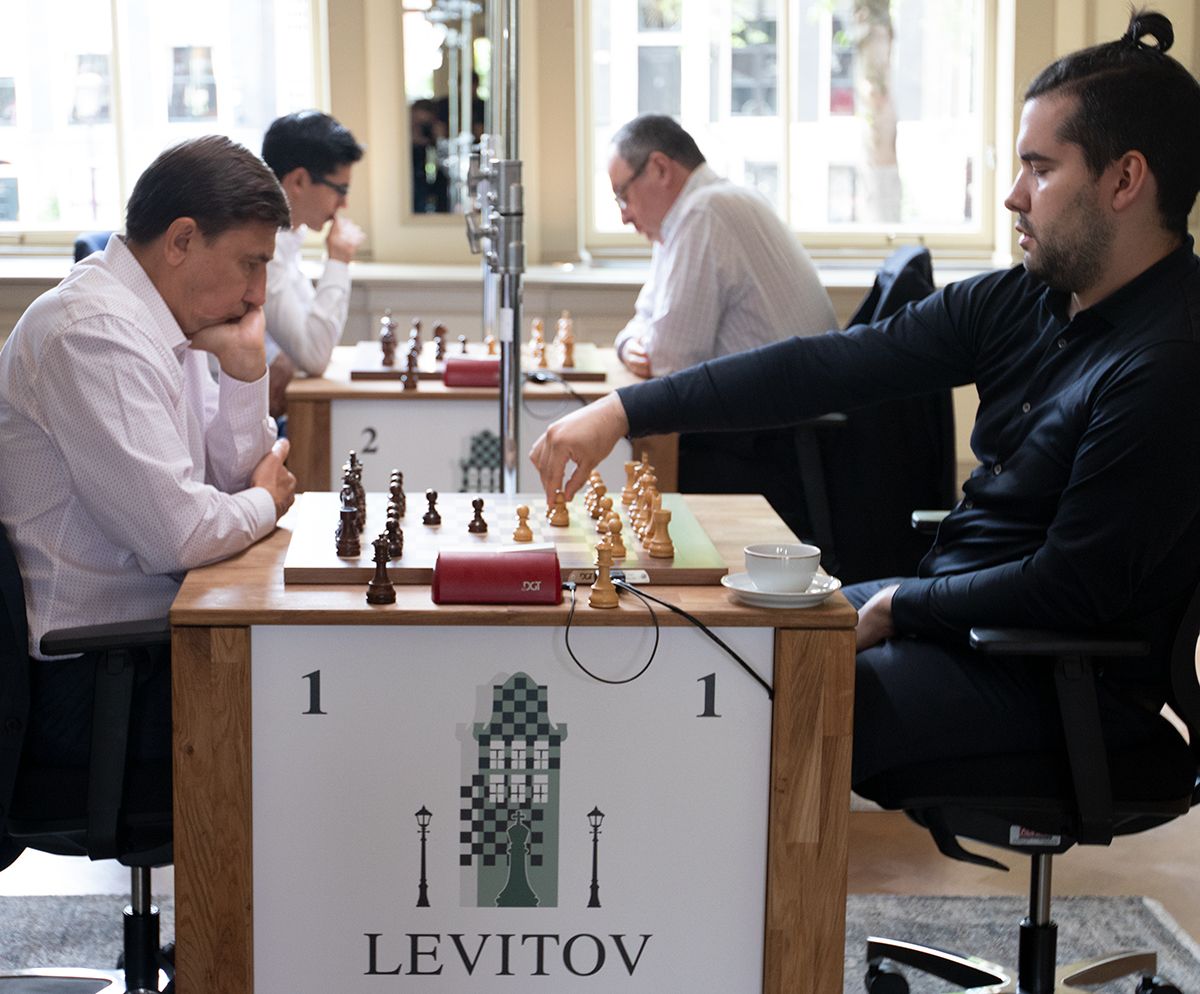.jpeg)

.jpeg)
Master Class Vol.11: Vladimir Kramnik
This DVD allows you to learn from the example of one of the best players in the history of chess and from the explanations of the authors (Pelletier, Marin, Müller and Reeh) how to successfully organise your games strategically, consequently how to keep y
When Igor Levitov, former Executive Director of the Russian Chess Federation, gave himself a chess tournament for his 40th birthday, there was no public announcement of the tournament, and scant public information. Eight top players were invited to Amsterdam along with a handful of prominent spectators. The resulting rapid and blitz tournaments at the Waldorf Astoria Hotel were called "Levitov Chess Week".
Vladimir Kramnik returned to the chessboard for the occasion — his January retirement was only from serious classical chess competition. He and Anand scored the best in the blitz portion. But in the subsequent rapid chess tournament things did not go so well for either of the former world champions. Anand played well until the fourth round and led with 3½ points. But then the Indian conceded three defeats in the last three rounds and fell back to 4th-5th place.
The winner of the tournament was Ian Nepomniachtchi. He had defeated Anand in round five, taking the lead, and held the top spot until the end, finishing with 5 of 7, tied with Alexander Grischuk. He was declared the winner thanks to his win in their direct encounter.

Nepomniachtchi faces Bareev | Photo: Peter Doggers/chess.com
Nepomniachtchi lost ground on the final day in his game against Giri, but then defeated Evgeny Bareev in the final round. The veteran grandmaster who emigrated from Russia to Canada and seldom plays, played a bit too ambitiously here:
After 12...♞xd4 the game is completely equal. But Bareev had an interesting idea: He played 12...♞e5!? hitting the bishop, and after 13.♗xd5, he went on the attack with 13...♞eg4 14.♘f3 ♞xh2!? 15.♘xh2 ♝xh2+ and a piece sacrifice. 16.♔xh2 ♞g4+ It is not enough here, although Nepomniachtchi had to proceed precisely:
17.♔g3! [Less clear is 17.♔g1 ♛h4 18.♗xf7+ ♚xf7 (18...♚h8 19.♕d6 +-) 19.♕f3+ ♚g8 20.♕h3 ♛xh3 21.gxh3 ♞e5, although White is better here as well.]
17...♛d6+ [17...♛g5 is also not enough: 18.♗xf7+ ♚xf7 (18...♚h8 19.f4 ♜xe3+ 20.♖f3 +-) 19.♕d5+ +-]
18.♔f3 ♛h6 [Now Black threatens 19...♜xe3 20.fxe3 ♛xe3 mate.] 19.♕d4 ♛h5 [threatening mate again after 20...♞xe3.] 20.♖h1 and here Black had enough. After 21...♛f5+ 22.♕f4 ♞e5+ 23.♔g3 ♛g6+ 24.♔h2 the king slips from Black's grasp. 1-0
Peter Svidler experienced his personal Waterloo against Vladimir Kramnik in round six.
On this DVD Vladimir Kramnik retraces his career from talented schoolboy to World Champion in 2006. With humour and charm he describes his first successes, what it meant to be part of the Russian Gold Medal team at the Olympiad, and how he undertook the Herculean task of beating his former mentor and teacher Garry Kasparov.
Black played 13...♞b4, which poses some unpleasant questions — c4 and d4 are under attack. After 14.♗b1 ♝xf3 15.gxf3 and White hoped for 15...♛xd4 16.♘e4, after which he stays in the game.
Kramnik, however, went for 15...♞h5 and after 16.a3 [Better was 16.♕e4 g6 17.a3] 16...♛d6 17.f4 [On 17.axb4 there follows 17...♛g5 + (17...♛h4 18.f4 Nxf4 is enough too.) 18.♔h1 ♛f4]
17...♛h4 18.f3 ♞xf4 19.♕d2 ♞bd3 and White was done. 20.♗xd3 ♞xd3 21.♖c2 ♛xd4+ 22.♔h1 ♛xc4 and White's position is in ruins. 0-1
Translation from German: Macauley Peterson